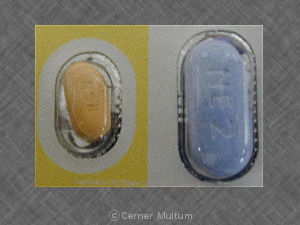Actonel with Calcium Interactions
There are 312 drugs known to interact with Actonel with Calcium (calcium carbonate/risedronate), along with 10 disease interactions, and 3 alcohol/food interactions. Of the total drug interactions, 15 are major, 246 are moderate, and 51 are minor.
- View all 312 medications that may interact with Actonel with Calcium
- View Actonel with Calcium alcohol/food interactions (3)
- View Actonel with Calcium disease interactions (10)
Most frequently checked interactions
View interaction reports for Actonel with Calcium (calcium carbonate / risedronate) and the medicines listed below.
- Actonel (risedronate)
- alendronate
- alprazolam
- aspirin
- Aspirin Low Strength (aspirin)
- atorvastatin
- Benicar (olmesartan)
- Calcium 600 D (calcium / vitamin d)
- cholecalciferol
- clopidogrel
- Crestor (rosuvastatin)
- ferrous sulfate
- folic acid
- Forteo (teriparatide)
- furosemide
- hydrochlorothiazide
- Lasix (furosemide)
- levothyroxine
- Lipitor (atorvastatin)
- lisinopril
- losartan
- Metamucil (psyllium)
- metformin
- metoprolol
- Nexium (esomeprazole)
- pantoprazole
- prednisone
- simvastatin
- Spiriva (tiotropium)
- Synthroid (levothyroxine)
Actonel with Calcium alcohol/food interactions
There are 3 alcohol/food interactions with Actonel with Calcium (calcium carbonate / risedronate).
Actonel with Calcium disease interactions
There are 10 disease interactions with Actonel with Calcium (calcium carbonate / risedronate) which include:
- ONJ
- hypocalcemia
- upper GI mucosal irritation
- phosphate calcifications
- cardiac contraction/conduction
- malabsorption
- renal dysfunction
- sarcoidosis
- asthma
- renal dysfunction
More about Actonel with Calcium (calcium carbonate / risedronate)
- Actonel with Calcium consumer information
- Compare alternatives
- Reviews (1)
- Drug images
- Side effects
- Dosage information
- During pregnancy
- FDA approval history
- Drug class: bisphosphonates
Related treatment guides
Drug Interaction Classification
| Highly clinically significant. Avoid combinations; the risk of the interaction outweighs the benefit. | |
| Moderately clinically significant. Usually avoid combinations; use it only under special circumstances. | |
| Minimally clinically significant. Minimize risk; assess risk and consider an alternative drug, take steps to circumvent the interaction risk and/or institute a monitoring plan. | |
| No interaction information available. |
See also:
Further information
Always consult your healthcare provider to ensure the information displayed on this page applies to your personal circumstances.


